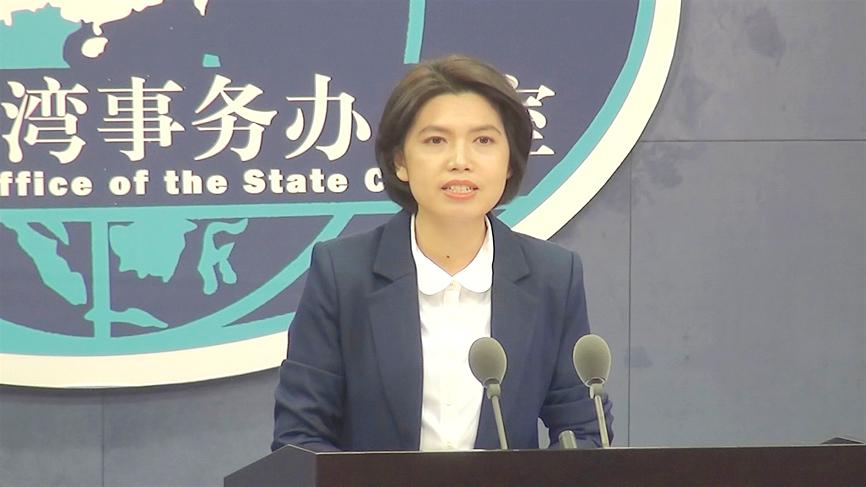China sentenced Shih Cheng-ping (施正屏), a former National Taiwan Normal University (NTNU) professor, to four years in jail for espionage, officials said yesterday.
The ruling came a month after Shih made a televised “confession” on state media.
Shih, who is also a former chief economist for Chinese conglomerate Huaxia Group (華夏集團), was found guilty by a Chinese court on Tuesday, China’s Taiwan Affairs Office (TAO) told a news briefing.

Photo: CNA
Shih — who vanished after traveling to China in August 2018 — was among Taiwanese who China Central Television (CCTV) last month showed confessing to spying.
CCTV often broadcasts suspects admitting to crimes, even before they have appeared in court — a practice that has long been condemned by lawyers and rights organizations as forcing confessions under duress.
Shih said in the interview that he had passed information from a Chinese think tank to Taiwanese authorities in exchange for money, and that he hoped his experience would serve as a “warning” to others in Taiwan.
TAO spokeswoman Zhu Fenglian (朱鳳蓮) yesterday said that a court in Anhui Province had sentenced Shih to four years in prison, a year after China first said it was investigating Shih on national security grounds.
China “fully safeguarded” Shih’s rights during the hearing, Zhu said.
At least two other Taiwanese are being held on national security grounds in China: academic Tsai Chin-shu (蔡金樹) and democracy advocate Lee Meng-chu (李孟居).
Zhu also said that China was in the process of compiling a watch list of Taiwan independence supporters, without providing any details.
Additional reporting by staff writer

SECURITY: As China is ‘reshaping’ Hong Kong’s population, Taiwan must raise the eligibility threshold for applications from Hong Kongers, Chiu Chui-cheng said When Hong Kong and Macau citizens apply for residency in Taiwan, it would be under a new category that includes a “national security observation period,” Mainland Affairs Council (MAC) Minister Chiu Chui-cheng (邱垂正) said yesterday. President William Lai (賴清德) on March 13 announced 17 strategies to counter China’s aggression toward Taiwan, including incorporating national security considerations into the review process for residency applications from Hong Kong and Macau citizens. The situation in Hong Kong is constantly changing, Chiu said to media yesterday on the sidelines of the Taipei Technology Run hosted by the Taipei Neihu Technology Park Development Association. With

A US Marine Corps regiment equipped with Naval Strike Missiles (NSM) is set to participate in the upcoming Balikatan 25 exercise in the Luzon Strait, marking the system’s first-ever deployment in the Philippines. US and Philippine officials have separately confirmed that the Navy Marine Expeditionary Ship Interdiction System (NMESIS) — the mobile launch platform for the Naval Strike Missile — would take part in the joint exercise. The missiles are being deployed to “a strategic first island chain chokepoint” in the waters between Taiwan proper and the Philippines, US-based Naval News reported. “The Luzon Strait and Bashi Channel represent a critical access

‘FORM OF PROTEST’: The German Institute Taipei said it was ‘shocked’ to see Nazi symbolism used in connection with political aims as it condemned the incident Sung Chien-liang (宋建樑), who led efforts to recall Democratic Progressive Party (DPP) Legislator Lee Kun-cheng (李坤城), was released on bail of NT$80,000 yesterday amid an outcry over a Nazi armband he wore to questioning the night before. Sung arrived at the New Taipei City District Prosecutors’ Office for questioning in a recall petition forgery case on Tuesday night wearing a red armband bearing a swastika, carrying a copy of Adolf Hitler’s Mein Kampf and giving a Nazi salute. Sung left the building at 1:15am without the armband and apparently covering the book with a coat. This is a serious international scandal and Chinese

COUNTERINTELLIGENCE TRAINING: The ministry said 87.5 percent of the apprehended Chinese agents were reported by service members they tried to lure into becoming spies Taiwanese organized crime, illegal money lenders, temples and civic groups are complicit in Beijing’s infiltration of the armed forces, the Ministry of National Defense (MND) said in a report yesterday. Retired service members who had been turned to Beijing’s cause mainly relied on those channels to infiltrate the Taiwanese military, according to the report to be submitted to lawmakers ahead of tomorrow’s hearing on Chinese espionage in the military. Chinese intelligence typically used blackmail, Internet-based communications, bribery or debts to loan sharks to leverage active service personnel to do its bidding, it said. China’s main goals are to collect intelligence, and develop a